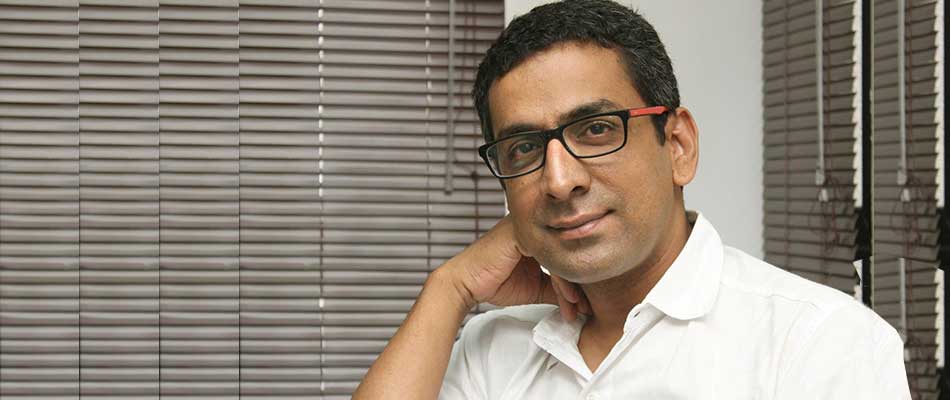Education enables an individual and the society to evolve in a given context. Education in researching and practising performing arts makes us sensitive to the world around in all its complexities.
Performing art is not just a theatre-show to be performed in a closed auditorium or an open space. It is inclusive of all the other arts and different disciplines of gaining and disseminating knowledge. It evolves in continuity with historical, philosophical as well as political conditions of human societies. Diverse and different from each other, various domains in performing arts explore multiple forms of knowledge in different ways. For instance, a folk theatre form can elucidate the connection between human and nature, ordinary and godly through common as well as philosophical discourses. On the one hand, in traditional practices of performances, a text may illustrate what the other is saying, and word, gesture and movement echo one other. On the other hand, in contemporary performance practices, one may come up with a multi-media piece by presenting more than one viewpoint at the same time. Interestingly, both the ways: traditional and contemporary, exist simultaneously, cutting across each other’s boundaries from time to time.
Therefore, it is important that our education recognizes the independent potential of performance practice with different elements in it like the verbal, the musical and the visual. The elements are shaped by philosophical underpinnings. Through the research and practice, performing arts education remains in constant dialogue with the practitioners of a number of forms such as Chhau, Tamasha, Kalaripayattu, and modern theatre practices. G Venu, a well-known performer, teacher and scholar of Kutiyattam has devised ‘Navarasa Sadhana’ a module as a transformative process for artists seeking a deeper insight into the depths and diversity of human emotions. While discussing his practice of performance and teaching, he writes in his essay, Navarasa Sadhana: A system of acting methodology for actors and dancers: “The present system of the Sadhana had been codified in a way so that performers from various genres will be able to incorporate the practising of the nine rasas into their routine practice. Nobody so far has raised any discussion about whether practising Navarasa Sadhana would pose any problem for performers from different genres to preserve the uniqueness of their individual forms. Performers from genres including Kutiyattam, Bharatanatyam, Kathak, Kuchipudi, Mohiniyattam, Theatre and Cinema have been part of the Navarasa Sadhana training so far.”
Thus, the best education in performing arts has always been a sadhana of and into different knowledge systems and practices. And, such education has to be imparted in progression: from one stage to the other. Traditionally, a disciple is not supposed to go public with his/her performance till he/she satisfies the guru with all the knowledge and skills that he has acquired in his/her field of work. In modern-day strategic university education, a student has to fulfil all the requirements from basic to advance level of learning before she has been awarded a degree. Systems and forms could be different but the essence of education should remain the same.
In order to achieve best results in all possible scenarios of imparting education in performing or any other arts-education, it is necessary to provide students with the opportunity to engage their minds and bodies, emotions and intellect with a collaborative spirit to discover art, form and life. A challenge is not to lose an impulse within the framework of the classroom set-up or the institutional systems. A facilitator-pedagogue-teacher has to break away from the drudgery of one-way communication and engage in creative, reflective approaches of looking into contradictions and paradoxes of human conditions through field-work, rehearsals or presentations. If a facilitator, a pedagogue or a teacher could focus on an individual's or a group's artistic development specific to the context, it would help learners develop a deeper understanding in their areas of interest such as writing, acting, direction, stage-design or performance studies. Needless to say, all these elements of performing arts education are organically connected to several other disciplines in humanities and social sciences, and natural and physical sciences.
Thus, performing arts education has to progress through ongoing dialogue between theoretical assumptions and the world outside and, rehearsal room and practicalities of creating a work. Within constantly evolving pedagogies and methodologies of performing arts teaching and learning, teachers, institutions as well as students and parents have to understand that any practice of knowledge can’t be seen only through the profit-loss equation. While broadening the scope of performing arts practices, we need to look at different stakeholders not only as and linked to economic production or consumption but also part of organically connected cultural and social processes. Thus, we have to consider performance and other arts education practices in strengthening human bonds, building networks of academicians and practitioners, advocating best individual and institutional practices at local and global levels. At a point, when many of us are rushing and pressuring ourselves in accumulating material wealth, we need to create a corner that may let us think more carefully and listen more attentively to our own voices and hearts. Such a corner could be built by forward-looking scholars and artists in the field of performing arts. We should be happy to own such a corner-space to live sensibly, looking at meaningful and healthy future.
- Prof. Ashutosh Potdar, Associate Professor, Literature and Drama, FLAME University, Pune


